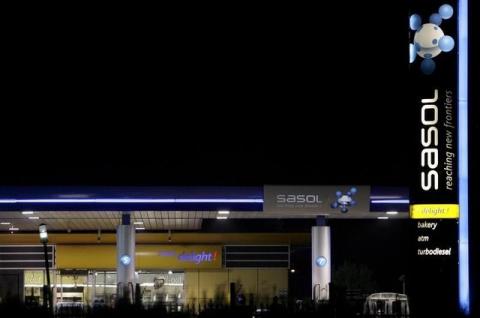Advertisement
Sasol sees first Mozambique oil production in 2-3 years
JOHANNESBURG (Reuters) - Petrochemicals group Sasol has found oil in wells off Mozambique and aims to bring the fossil fuel to production for the first time in the southern African nation, one of its joint chief executives said on Monday.
Oil production will raise the hydrocarbon profile of Mozambique, an impoverished nation in the throes of a financial and debt crisis which has vast untapped offshore gas reserves and inland coal deposits.
"This will be the first oil wells in Mozambique that go to full development. Probably in two, maximum three years," Stephen Cornell told Reuters in an interview after the company announced interim results.
The company earlier said four of 12 planned wells had been drilled and the results had been surprising.
"We have drilled four wells, two of them gas, two of them oil, all showing positive results. In one of the areas where we expected mostly gas we found gas and oil," Cornell said.
The company has issued a "notice of discovery" to the government.
Cornell told Reuters Sasol had discovered oil in Mozambique before but as "part of an appraisal of the field and that helped us know where to drill."
But he said Mozambique was still "primarily a gas play."
Mozambique has some 85 trillion cubic feet of gas reserves -- enough to supply Germany, Britain, France and Italy for nearly two decades. It is likely to take at least five years after final investment decisions before gas production begins.
Sasol also said it had entered "into a number of hedges to mitigate specific financial risks ... Approximately 50 percent of the crude oil exposure was hedged with crude oil put options for 2017 at a net price of $49.50/bbl."
Sasol is scaling back planned capital expenditure this year in the face of a strengthening rand as it posted a fall in interim earnings.
Its capex estimate for the full year was cut to 66 billion rand ($5 billion) from 75 billion rand "largely due to the impact of the stronger rand/U.S. dollar exchange rate."
Sasol's products are priced in dollars but much of its costs are rand based. Forex movements also have valuation implications for its balance sheet.
Half-year headline earnings per share (HEPS) fell 38 percent to 15.12 rand, in line with what the company had previously flagged to the market. Sasol attributed the decline to rand gains and to a strike at its Secunda mining operations.
(Editing by David Evans)



















Add new comment